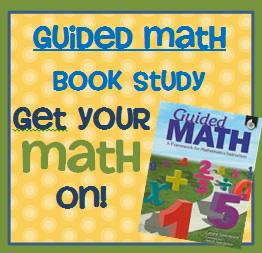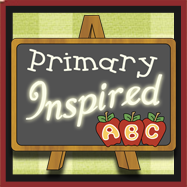
Hi everyone! I have fallen behind on the Guided Math book study. It's amazing how quickly you can be 3 chapters behind. I do have a good reason, though. I spent the last week in San Diego at the ISTE 2012 conference. It's a huge technology conference that is held for 4 days. It covers topics of all sorts and there are workshops, lectures, vendors, and model lessons. I learned a lot about using ipads in the classroom and will post on all I learned about in a few days. I will include some cool apps and links for you, too!
So, onto chapter 3 of Guided Math. I had considered not posting for chapters 3 and 4. It would be so easy to just skip over them and go onto chapter 5. But, I struggle, a lot, with not finishing things I start, so for the sake of personal accountability, I am going to post for these chapters, but I am going to make it short and sweet.
1. I love the idea of Math Stretches in the morning. I am definitely implementing this! Last year, we did personal calendar folders but since I am moving to second grade, I like the idea of math stretches first thing. This will give my students a chance to independently work while I am taking care of morning issues.
2. So love the students taking responsibility for math talk (p. 130). This is hard sometimes because it takes longer than me telling them what they should know:) But so important!
3. I also like the rotation of math stretches. It keeps a routine, but for me, I can see this as being able to do something different each day! I have a really hard time with things being the same day after day after day!
4. How cool to incorporate math current events. How come I didn't think about this?
5. Calendar...does anyone besides me not like calendar? I know it is so important, but goodness, it drives me so crazy. I am going to have to reread this chapter again and figure out how to incorporate it, make it meaningful to my students, and do it in a way I can be excited about calendar every day!
Well, I am going to stop here. I really learned a lot about this chapter but I really need to start reading chapter 4. Talk to y'all soon!
